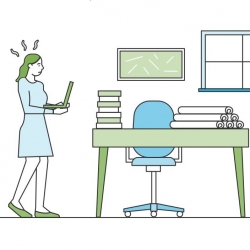To provide the best experiences, we use technologies like cookies to store and/or access device information. Consenting to these technologies will allow us to process data such as browsing behaviour or unique IDs on this site. Not consenting or withdrawing consent, may adversely affect certain features and functions.
The technical storage or access is strictly necessary for the legitimate purpose of enabling the use of a specific service explicitly requested by the subscriber or user, or for the sole purpose of carrying out the transmission of a communication over an electronic communications network.
The technical storage or access is necessary for the legitimate purpose of storing preferences that are not requested by the subscriber or user.
The technical storage or access that is used exclusively for statistical purposes.
The technical storage or access that is used exclusively for anonymous statistical purposes. Without a subpoena, voluntary compliance on the part of your Internet Service Provider, or additional records from a third party, information stored or retrieved for this purpose alone cannot usually be used to identify you.
The technical storage or access is required to create user profiles to send advertising, or to track the user on a website or across several websites for similar marketing purposes.
 The managers and owners of firms across the UK now believe that the cost of living crisis is the top risk to their business, closely followed by a range of employee related issues, according to a new poll. Employee related risks in the top five include lack of skilled talent, employee retention and cost of salaries. Despite the cost of materials continuing to rise over the last 12 months, this risk has dropped back from first place in 2022. Risks relating to debts, late payments and fraud all make an appearance in the top ten for the first time. (more…)
The managers and owners of firms across the UK now believe that the cost of living crisis is the top risk to their business, closely followed by a range of employee related issues, according to a new poll. Employee related risks in the top five include lack of skilled talent, employee retention and cost of salaries. Despite the cost of materials continuing to rise over the last 12 months, this risk has dropped back from first place in 2022. Risks relating to debts, late payments and fraud all make an appearance in the top ten for the first time. (more…)
















 A significant majority (85 percent) of employees feel like they are just a cog in the machinery of their organisation and 43 percent have no idea how their performance contributes to business success, according to a new survey of employee experience and expectations. According to the
A significant majority (85 percent) of employees feel like they are just a cog in the machinery of their organisation and 43 percent have no idea how their performance contributes to business success, according to a new survey of employee experience and expectations. According to the 
















July 21, 2023
It is possible to balance the positives and negatives of stress at work
by Lisa Gunn • Comment, Wellbeing